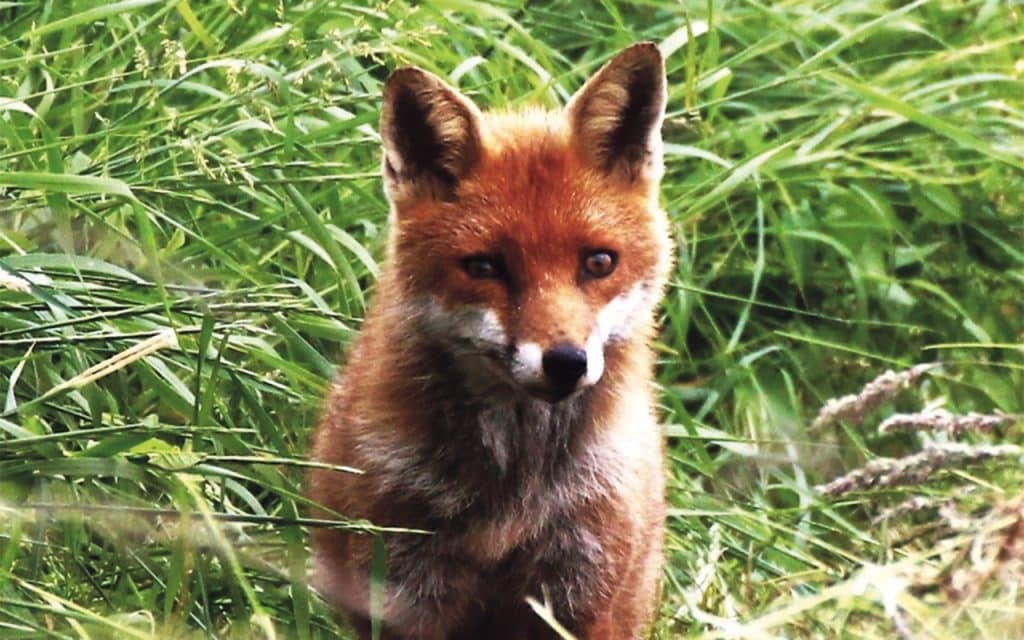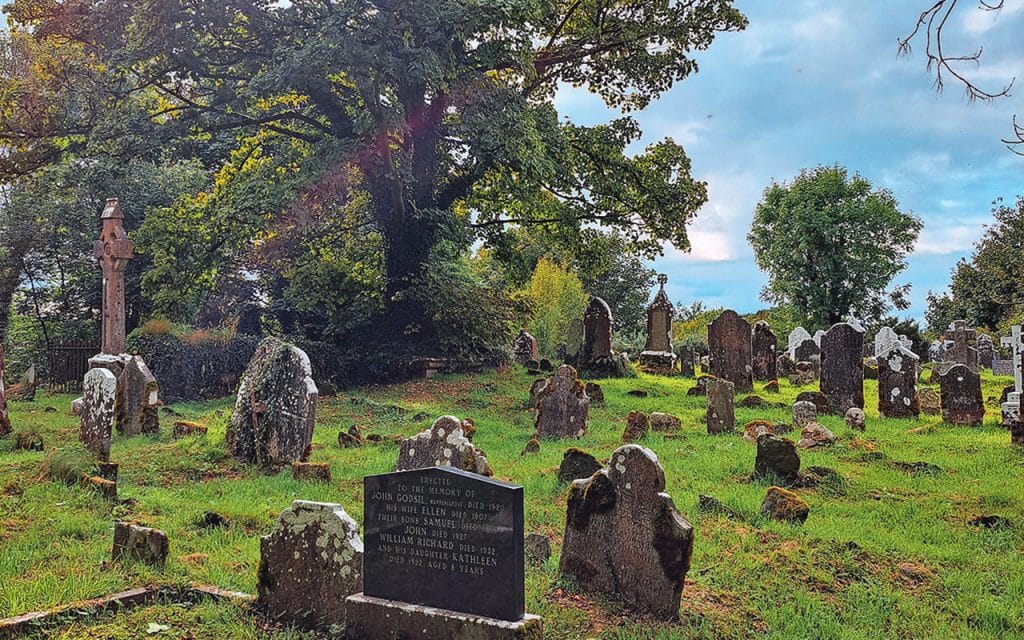On a fine May evening four years ago, I came across a most delightful sight: three little fox cubs in a neighbouring field, happily chasing one another around while their mother watched out for danger. This was such a treat for me, having just returned from two years in a dystopian Chinese city where the only wildlife one was likely to encounter would be on a plate, stir-fried with soy sauce. Back in Ireland, I could see foxes every day.
But not anymore.

Foxes belong to the dog family, Canidae, which contains 37 species, including various wolves, coyotes, jackals and oddities such as the maned wolf and the raccoon dog. There are 12 species of true foxes, only two of which are found in Europe – the beautiful Arctic fox, and our own red fox. The latter has an enormous range, from Ireland to China, Norway to North Africa, and all over North America. It was, unfortunately, introduced to Australia so that the colonial rulers of the time could dress up in their hunting pinks and slaughter animals more familiar than kangaroos. This has contributed to the extinction of many native species, and so in Australia red fox numbers need to be controlled. Here they don’t, or wouldn’t if we lived in a balanced ecosystem (it wasn’t the foxes who unbalanced it), and certainly not by blood-thirsty ‘sportsmen’.
The fox hunting season has just started. Hunters often come around our way – wild hollering men with dirty, baying hounds. They are disorganised and, I am told, never catch a fox. Last season, something quite different ruined an afternoon’s bird-watching – a proper fox hunt with horses. These huntsmen had walkie-talkies, hunting horns and larger hounds. In their smart jackets, two of them red, they were pretending to be country gentlefolk, but their bellowing and howling, their total disrespect for the local farmers’ fields and fences, the way they frightened a woman and child who were out walking that day, and of course, their purpose – terrorising and possibly killing a wild animal for pleasure – all showed them to be exceedingly unpleasant, and far from gentle. (It is funny to think that the red coats and other traditions of fox hunting have come from upper-class England, which one would have imagined reason enough to make it unpopular here. They could at least have replaced the red coats with green ones).
Now, something even more sinister has happened. I haven’t seen a fox for many weeks, which is most unusual. No barking at night, no gingery brush disappearing guiltily over the wall at dawn. And I just discovered the reason. Yesterday afternoon, as I write this, some very unsavoury-looking strangers walked down our once-quiet lane. They were dressed in khaki, wore camouflaged baseball caps, had binoculars and greyhound-type dogs. They stopped near my front door, so I quite rightly asked them what they were doing. One said, with a smirk, that they were bird-watching. I thought they were hunters, and told them I didn’t like people who killed animals. They moved on, but I worried. They were obviously on a reconnaissance mission. And sure enough, as I was about to go to bed, an unfamiliar van passed by (after midnight, on a cul-de-sac). Shortly afterwards, bright lights shone up the lane, and beams flashed in the sky and all around the neighbouring fields. Such goings-on would worry any elderly person living alone in a remote place, even if they didn’t care about foxes. So I got dressed, and went out to see what was happening. The van, full of men, rushed towards me, so I retreated hurriedly behind my gate. It stopped, and a big face leered out.
“We were just doing a bit of lamping. You don’t mind?”
Of course I minded, but I’m sure he couldn’t understand why. He boasted that they had killed five foxes, and there was nothing I could do about it. That was true – fox hunting with dogs is not illegal in this country as it is in the UK (although lamping near a public road is). Foxes are not rare, but that is no reason to torment them. They have their lives to lead, just as we do – and they were here first.
I now think that these blackguards have been around before, hence the absence of foxes. The reason that man gave for killing the foxes was that they were eating lambs, so the farmers wanted them exterminated. That was nonsense – this is cattle country and it would be a foolhardy fox to take on a Friesian cow. If you keep chickens however, as my sister does, foxes are the enemy. But it is not their fault that we have chosen to keep a dozen hens in the middle of what has been their territory for hundreds of years. Chickens are not terribly bright, so it is up to us to make sure they don’t end up as a fox’s dinner.
Foxes have to work hard to survive, like all wild animals. When food is scarce, their cubs might die. The foxes around here eat blackberries in the autumn, sugar beet in the winter, hares in the spring and whatever they can steal from people’s gardens (ours seem especially fond of beetroot). When things are really bad, they eat slugs. Many foxes have moved into the city, and because urban man leaves so much rubbish around, they have an easier life, and an absence of hunters. There are an estimated 10,000 foxes living in London.
In Oscar Wilde’s play, ‘A Woman of No Importance’, Lord Illingworth was not thinking particularly about foxes (though Wilde might have been) when he referred to the English country gentleman galloping after a fox as “the unspeakable in full pursuit of the uneatable”. The conversation was more generally about politics, health and the impoverished lower classes, but it describes fox hunting perfectly – nasty people chasing after a wild mammal, not for food or pest control, just for fun. Hunters supposedly love nature, but I can’t equate an appreciation of wildlife, of mammals and birds, insects and trees, with the noise, violence and cruelty of a fox hunt.
As I have written before, I was once an angling boat skipper, and I killed or was responsible for the deaths of thousands of fish, some for food or sale, some for scientific research. But most were caught by my anglers, for pleasure. I feel guilty about that now. Yet fish, though well aware of pain and of something being terribly wrong as they are hauled from their homes in the sea, can hardly be compared to foxes or other mammals in terms of feeling. Those hunters have dogs – a fox is a dog, just a different species. Would they feel the same chasing after, and killing, a collie or a poodle? Some probably would. People here still derive pleasure from chasing hares, which is beyond comprehension – a hare is a lovely creature, and totally harmless. There are even a few who enjoy badger baiting, another abomination. One might have thought that twenty-first century Ireland, so compassionate to humans in distress, would have learned to feel the same for its animals. But as well as hunting, there are all the unwanted pets that overwhelm the ISPCA, the poisoned birds of prey, the whales and basking sharks forced to swallow plastic that we dump into the sea, the hedgerows that get mutilated without thought for the animals that live in them, or the food their plants supply. And few care at all about the loss of insects caused by pesticides and habitat destruction such as the excessive cutting of lawns and grass verges.
I knew the foxes who were killed last night. I knew their dens, watched their cubs in the spring time, enjoyed their eerie barks on winter nights. Now they are gone. More foxes will move into the area one day, but for now, the pleasure I, and other genuine nature lovers, get from seeing those handsome, intelligent creatures, the nearest we have in Ireland to lions or tigers, has been stolen.
I have been told that nocturnal hunters can be dangerous and I shouldn’t even have spoken to them; at the time, I was too angry to worry about my own safety. I doubt if such scoundrels read the West Cork People, or very much else, but if my animal article doesn’t appear next month, you will know why.



